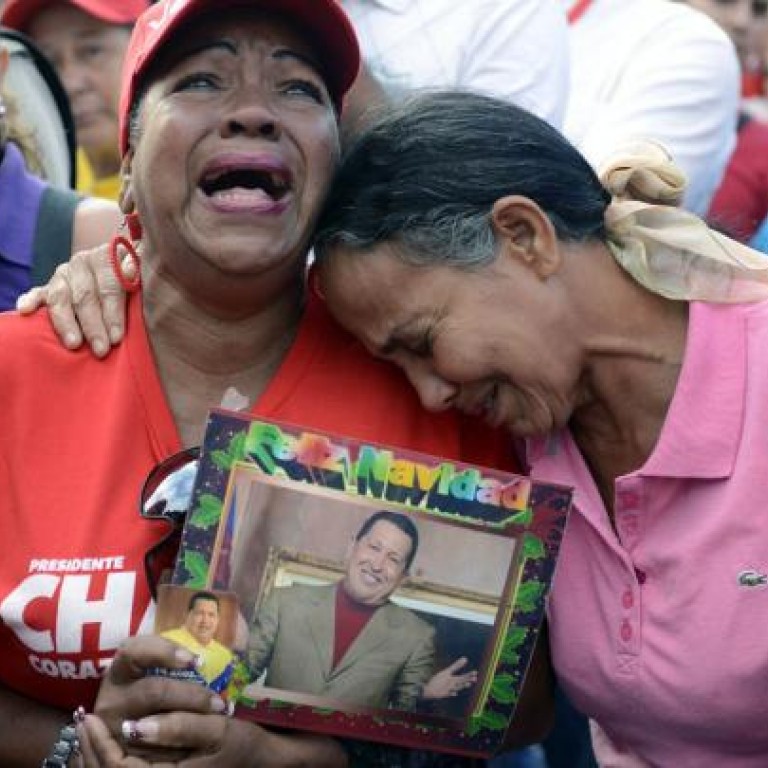
Chavez's passing is opportunity to restore democratic institutions
Venezuela's late president Hugo Chavez was an extraordinary leader. His charisma and forceful manner ensured a string of decisive election victories that kept him in power from 1999 until his death from cancer on Tuesday at the age of 58. The creator of a socialist movement centred on reducing poverty and inequality, he had a legion of adoring fans across Latin America. But his controversial policies and divisive rule have left the nation in a sorry state, its politics deeply divided, its economy in a shambles and its judiciary and media broken.
Venezuela's late president Hugo Chavez was an extraordinary leader. His charisma and forceful manner ensured a string of decisive election victories that kept him in power from 1999 until his death from cancer on Tuesday at the age of 58. The creator of a socialist movement centred on reducing poverty and inequality, he had a legion of adoring fans across Latin America. But his controversial policies and divisive rule have left the nation in a sorry state, its politics deeply divided, its economy in a shambles and its judiciary and media broken.
Those were not the circumstances when Chavez won the presidency, promising to rid Venezuela of corrupt elites and capitalist wrong-doing. But, although chosen by popular mandate, his governing style was autocratic. The constitution was rewritten and adversaries bullied into submission or silenced. He became a thorn in the side of the US, making friends with its enemies and stirring Latin American politics.
Key to his reforms was the country's oil wealth, which was diverted to social programmes and used to win influence and borrow, largely from China. The approach has had a marked effect, with the percentage of the population living in poverty falling from 49 to 27 and the nation now having the fairest income distribution in Latin America. But the destruction of democratic institutions, dismantling of free markets and often-erratic policy incurred a heavy social and economic cost. Crime has soared, inflation is running over 20 per cent and Venezuela is the worst-performing of the region's economies.
Chavez's death has left millions mourning. The US has responded diplomatically; Cuba and other countries given generous oil deals are pondering uncertainty. With Venezuela's electoral system stacked in the ruling party's favour, there is every chance it will stay in power. But society is polarised and it is in the nation's interests that the opaqueness of past rule is swept aside and democratic institutions restored. Chavez's passing gives an opportunity that Venezuelans must grasp if their country is to have a positive and bright future.

